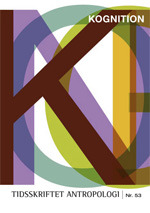IDEERNES EPIDEMIOLOGI OG KULTURENS IMMUNOLOGI: Et forsvar for et kulturhistorisk forklaringsniveau
DOI:
https://doi.org/10.7146/ta.v0i53.106724Resumé
In recent developments in anthropology and the science of religion, the concept of
culture has been criticised as being without any explanatory value. Thus, proponents of
cognitive anthropology have argued that culture, instead of explaining anything by
itself, is the thing in need of explanation. Dan Sperber and Pascal Boyer have
independently argued that in order to understand the diffusion of cultural ideas, we
need to pay close attention to two selective factors: domain-specific cognitive mechanisms
and pragmatic relevancy. This theoretical development has been successful in
demolishing any remnants of a reified concept of culture and has, in contrast to
postmodernist critiques, supplied a scientifically viable alternative. Their approach should
thus be endorsed, but in their eagerness to promote a purely cognitive approach, Sperber
and Boyer have failed to explain the relative local success and stability of some
representations in contrast to other equally cognitive optimal representations. Why do
some religious representations thrive while other, equally cognitive optimal
representations, disappear? In order to address this problem, the metaphor of an
epidemiology of representations, suggested by Sperber, is extended by an “immunology
of cultural systems”. In addition to the selective forces described by Sperber and Boyer,
the immunological approach argues that the relative success of new representations is
largely dependent on how well they fit already existing cultural models. The success of
religious ideas is not only a product of how often they are expressed and how well they
fit cognitive structures. Their relative position in a constantly evolving ecology of ideas
will have a substantial impact on whether they are transmitted to new individuals or
whether they disappear together with countless other unsuccessful representations.
Describing the systematic relations between public representations and their historical
development is thus a necessary supplement to the epidemiological approach.
Downloads
Publiceret
Citation/Eksport
Nummer
Sektion
Licens
Ophavsretten til artiklerne i Tidsskriftet Antropologi tilfalder forfatteren.
Artikler publiceret i Tidsskriftet Antropologi må citeres, downloades og videresendes for ikke-kommerciel brug, under forudsætning af normal akademisk reference til forfatter(e) samt tidsskrift, årgang, nummer og sider. Artiklerne må kun genudgives med eksplicit tilladelse fra forfatter(e) og tidsskriftet.


